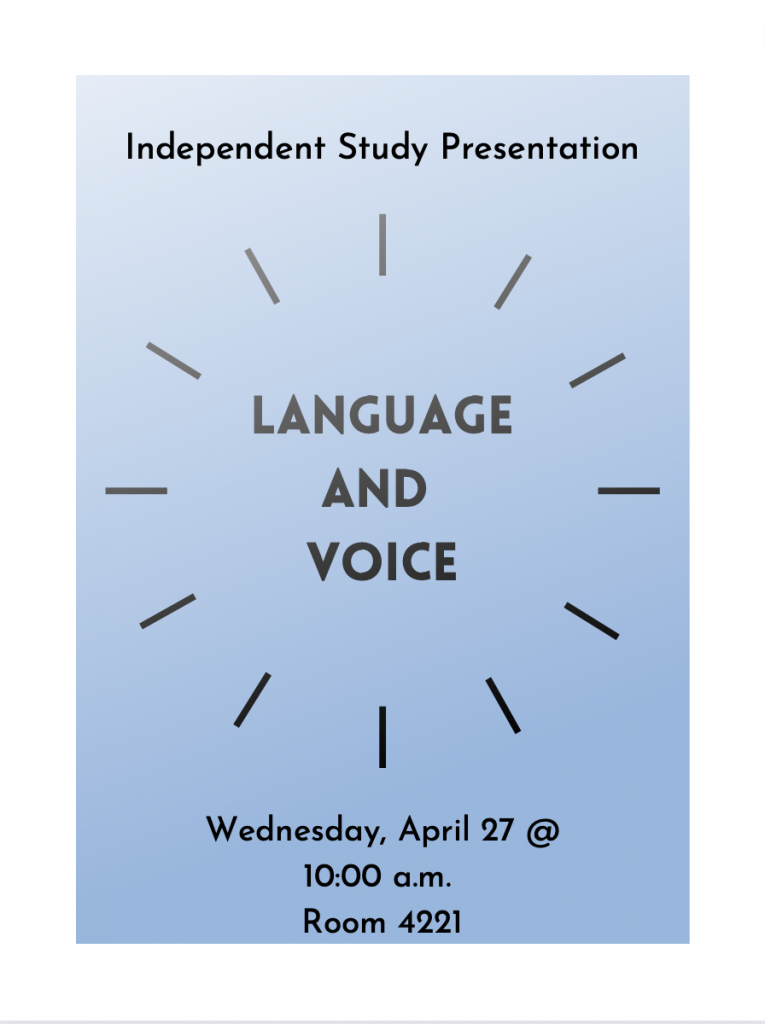-
You’re Invited!

-
Unit 3: Introduction
In my third and final unit, I am going to be learning about influential protests and their social movements. At first glance, this may not seem related to linguistics or learning sign language. Before, I was learning about people’s literal voice through both linguistics and American Sign Language, a form of communication without using said literal voice. Now I am exploring the metaphorical meaning of voice, i.e. the way people express themselves and their ideas.
A few of the influential protests I plan to look at include the Woman’s Suffrage parade (1913), the March on Washington for Jobs and Freedom (1963), and the “Deaf President Now” protest (1988).

-
Unit 2: Final Thoughts
The processes involved in speech and the many complex components of language are fascinating. I was surprised to find out that for something that we use every day, I didn’t know much about it.
I have always taken the amazing ability of speech for granted, except for the times where I have lost my voice. A few years ago, I coached a younger group of my teammates for a competition. Because I was their high school coach and practices were incredibly noisy with many elementary school kids in one space, I had to talk loudly so they could hear me. About two days before the competition, I got laryngitis and couldn’t use my voice; the only way for me to speak was to whisper, and even that was painful. Luckily, I wasn’t the one competing that weekend, but it made my job as a coach much more difficult. I was able to talk a little on competition day after going through two bags of cough drops and drinking hot tea every chance I could.
Looking back, I believe that my interest in speech and language stemmed from this one experience. Even though I would not talk much in class, I knew that I could answer a question if I really wanted to, but I usually did not want to answer a question that badly. I never knew how frustrating it was to want to say something and not even have the ability to say it. Language is unique to humans and our ability to use and process it makes humankind even more complex and interesting than I already believed.

1 comments
So many interesting points here! I’m really challenged by the idea of communicating without “states of being” verbs. And glad to learn about terminology for the Deaf community , Deaf culture, and hearing people.